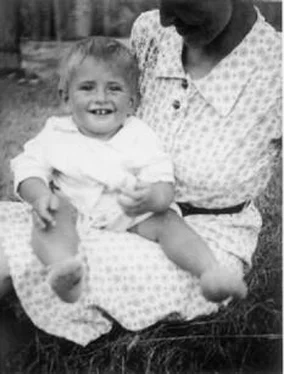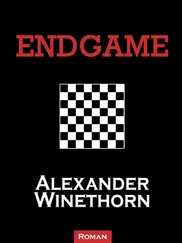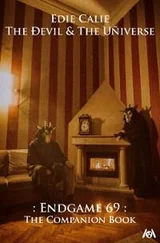Thus it was that one morning, at about six a.m. Hungarian time, Zita’s phone rang. Zita’s father, an official of FIDE, answered and immediately woke her. “Hi, this is Bobby.” He told her that the reason he was responding was that her letters were so “weird” and quite different from the average fan letters he received, but he thanked her for them. He told her that the reason he wasn’t playing was because the Russians cheat, and over the course of future letters and phone calls he elaborated on his theory regarding how the games played by Kasparov and Karpov had all been prearranged and that he believed that Kasparov and Karpov were actually agents of the Russian regime. He asked if she was Jewish. “Everyone who is a Soviet, and everyone who is Jewish, cannot be trusted,” he affirmed. When she objected to his ranting, he broke off the conversation and didn’t call back for months. More phone calls eventually followed, however, often in the middle of the night, and they also started a pen pal correspondence.
Eventually, he asked Zita whether she’d like to visit him. He told her he’d send her an airline ticket and that she could stay with a friend of his, since his room was too small and it wouldn’t be appropriate for her to stay with him in any event. He was right: After Regina had visited him once, she wrote to him about his cramped quarters: “You can hardly turn around.”
Zita applied for a visa immediately in the summer of 1992 and after many weeks of bureaucratic processing, she arrived in Los Angeles. Bobby met her at the airport. She did not recognize him because of his beard. Although he’d paid for the round-trip ticket, when Zita met him she discovered that he was practically penniless. She lent him a few hundred dollars, virtually all of her spending money. Some of it was paid back immediately because he agreed to be interviewed by a foreign journalist for a fee of $300. Bobby’s having consented to be interviewed for such a relatively small amount of money showed his financial desperation. It’s not known where, or if, the intended story ever appeared.
Zita remained in Los Angeles for six weeks and stayed at the home of Robert Ellsworth, an attorney who helped Bobby with various legal matters. She was with Bobby every day. They enjoyed each other’s company and, despite the May-December age gap (she was 17, he was 47), found common ground in their respective backgrounds. Both had started playing chess seriously at the age of eight and had dropped out of high school to be able to play chess full-time. Both loved the game and were highly intelligent and argumentative by nature. Bobby loved languages and, in addition to being fluent in Spanish, was becoming adept at Russian and German. Zita spoke German and English with hardly a trace of an accent. Bobby was World Champion—or so he still claimed—and she aspired to be. In an interview later on, Zita claimed that the real reason Bobby was interested in her was “because I didn’t want anything from him.”
When Bobby embarrassedly showed her his room, she couldn’t believe the way he lived. Barely thirty-five square feet, the living space included a small bathroom and a single bed. “He was ashamed of his poverty,” she later recalled. Books, boxes, and tapes were piled high. The content of the tapes? According to to Zita, they contained Bobby’s conspiracy theories. He told her he was planning to write a book that would prove how the Soviet players cheated in chess, and the tapes contained his thoughts on the matter.
Bobby and Zita played one game of chess: his new variation, called Fischer Random. She claims that she won and then became frightened. Perhaps he’d become violent toward her, she thought, because she was a woman and, also, not yet even a master. They never played again, but they did analyze together.
One evening when he picked her up to go out to dinner, he spotted some repairmen on the roof of a low-rise building across the street. They were probably Mossad (Israeli intelligence agents) spying on him, he said, part of his continued litany of “constant obsessions” as Zita observed.
Bobby explained that the reason he hadn’t competed in almost twenty years was that he was still waiting for the right offer, though he didn’t define what “right” meant. The right prize fund? Venue? Opponent? Number of games? It was probably all of those things and many more. He was also furious that although President Nixon had said he’d be invited to the White House in 1972, the invitation never arrived; Bobby had been fuming about it for two decades. In the interview Zita later gave to Tivadar Farkasházy, she claimed that Bobby was still waiting for the American government to apologize for the White House snub.
Zita couldn’t figure out who was paying his rent, minimal though it was. Somehow she knew that it wasn’t Claudia Mokarow. Zita thought it could be Bessel Kok; she was unaware that Kok no longer had any interest in backing Fischer for anything. In fact, Bobby’s rent and other basic needs were being paid for by his mother’s Social Security checks.
Regina had moved back to California from Nicaragua after having dizzy spells, a result of heart problems. She was seventy-seven and thinking of having an operation, and she wanted it performed in the United States. When Bobby heard about his mother’s impending surgery, he and Zita, both out of money, used the cheapest transportation they could find—an uncomfortable Greyhound bus—to travel north along the Pacific coast for three hundred miles, to Palo Alto. Besides offering Regina support, Bobby wanted to introduce her to Zita.
Regina was about to have a pacemaker implanted. Bobby, distrustful of doctors, tried to talk her out of the procedure, and they argued about it for hours. As a medical doctor, Regina knew more about the risks than he did, but Bobby was afraid of a foreign object being implanted in his mother’s body and what it might do to her. Regina remained adamant and had the operation anyway. She lived until the age of eighty-four.
In going to the United States and meeting Bobby, Zita had accomplished at least part of what she’d set out to do. She’d found out why Bobby Fischer wouldn’t play: It had to be the right offer, and it had to be (echoes of the Philippines and the Karpov match) $5 million.
Although Zita denied that there was any sexual intimacy with Bobby in the six weeks she stayed in Los Angeles—“I wasn’t thinking of that,” she said—he was falling in love. He referred to Zita as his girlfriend, and at another point he called her his fiancée. He knew that to proceed further—for example, to get married once she was no longer a minor—he’d have to have some money, which gave him further impetus to seek a chess match that would make him financially secure.
Zita’s father was a diplomat and an official of FIDE, and Zita had other contacts in the chess world who might help her find a sponsor for a Fischer-Spassky rematch. If Bobby would give her a letter saying that he was interested in playing a match, she told him she’d see whether she could secure backing. Bobby wrote out such a letter by hand. Remarkably, the man who rarely signed a letter of financial importance gave this seventeen-year-old the right, in this case, to speak for him. In mid-May Zita flew home.
It took almost a year, but she finally located someone—Janos Kubat, an internationally known chess organizer—who knew people who could raise the money for a $5 million match. When she first visited Kubat at his office, she couldn’t get past his secretary to see him. Then, at an airport, she heard his name being announced over the loudspeaker, and she tracked him down. He was at first skeptical of the teenager’s assertions, but when she showed him Bobby’s letter and gave him Bobby’s top secret telephone number, Kubat recognized that she was an authentic representative. He agreed to help.
Читать дальше


![Антон Текшин - EndGame [СИ]](/books/394477/anton-tekshin-endgame-si-thumb.webp)









